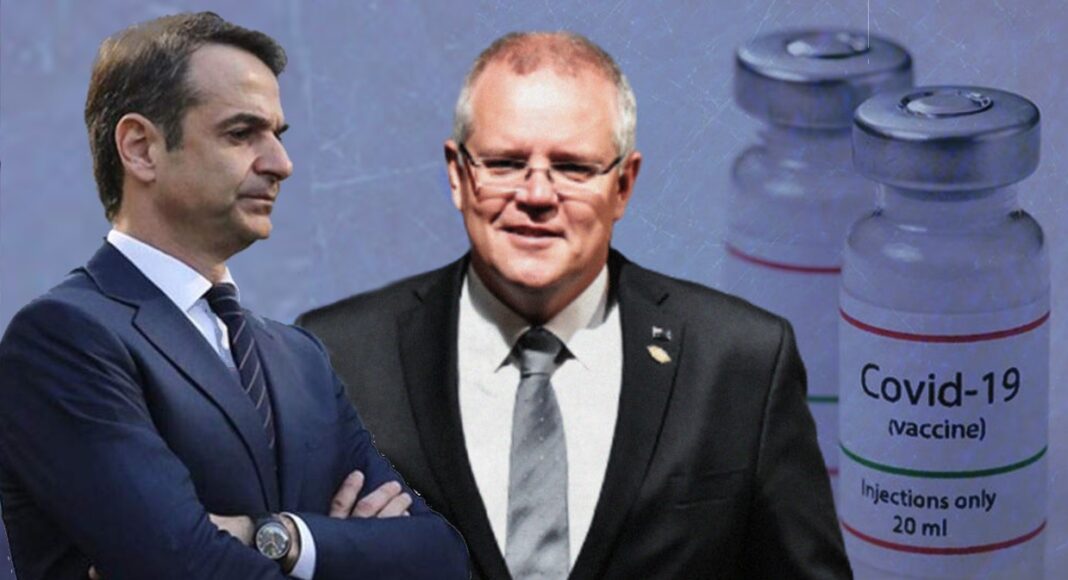Australian Prime Minister, Scott Morrison, announced yesterday his government had signed an agreement with UK-based drug company, AstraZeneca, to secure a potential COVID-19 vaccine being developed by Oxford University.
If the vaccine clears trials, the Federal Government would manufacture it and make it free for all Australians.
But that’s unlikely to be until early 2021 at the earliest, Mr Morrison said.
A few hours later, Greek Prime Minister, Kyriakos Mitsotakis, confirmed on Twitter that the European Union had also “reached an agreement with AstraZeneca to pre-purchase 300 million doses of vaccine,” and if trials were successful, the first doses of the vaccine would be “available in December 2020.”
With these mixed messages around when the potential coronavirus vaccine will be made available to the public in Greece and Australia, we decided to separate the facts from the fiction and give you some answers.
Drug firm denies Australian PM’s vaccine deal claim:
Today, drug company AstraZeneca has denied Morrison’s claim he has reached a deal to secure 25 million doses of the COVID-19 vaccine being developed by Oxford University.
The pharmaceutical company’s UK headquarters told pharmaceutical industry newsletter, Pharma in Focus, all the government has is a letter of intent (LOI).
“The LOI doesn’t go into any detail about costs or numbers or anything until we have an idea of what the manufacturing capacity is – that’s a critical piece in the puzzle,” a spokesperson said.

Mr Morrison has also claimed CSL will manufacture the vaccine here, but AstraZeneca says as of now there is no such deal.
“Discussions with CSL are ongoing. They’re still looking into whether they have the capability and capacity to produce a vaccine. We’re hoping that those discussions will be concluded swiftly but they’re still ongoing,” the spokesperson said.
European Commission refutes Greece’s claim that vaccine is expected in December 2020:
The European Commission confirmed on Tuesday there is no accurate timeline for the vaccine as yet.
“We are in a situation where we cannot tell the exact date of delivery. We are working to have the vaccine ready as fast as possible and as safe as possible,” EU spokesperson, Vivian Loonela, told EURACTIV.
Loonela added that the executive is currently in talks with several pharmaceutical companies to make sure enough vaccines are available for EU member states, as well as for donations to low-income countries.


